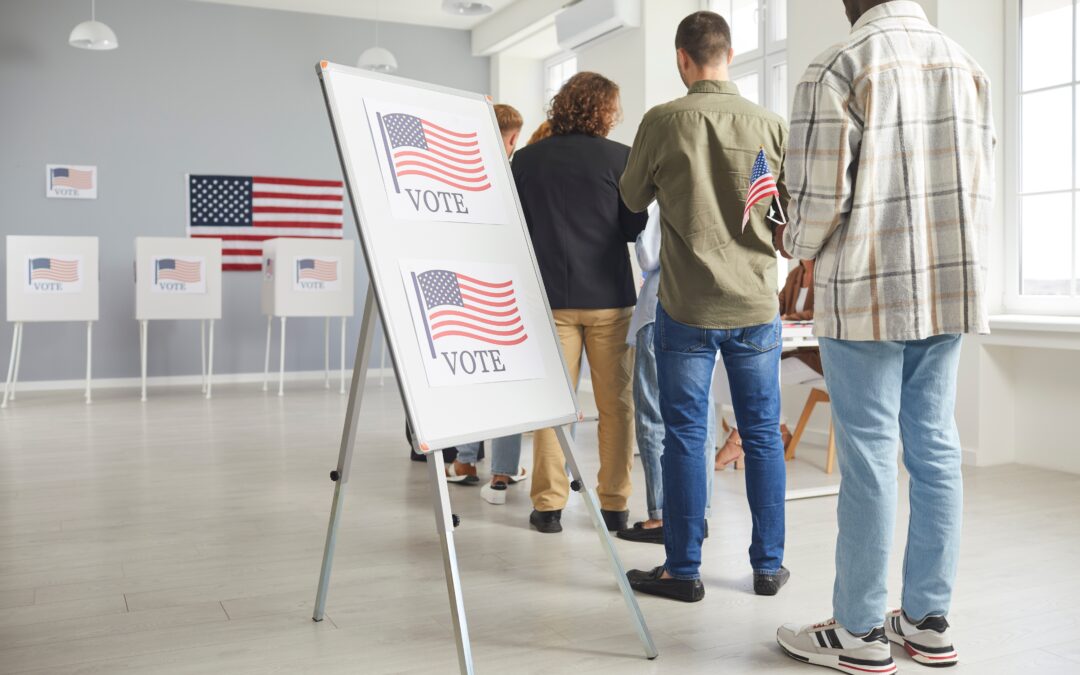With election season around the corner, it’s a good time for businesses to review their policies on time-off for voting. Voting is a fundamental right, and it’s important for employers to be aware of their obligations to allow employees the opportunity to cast their ballots. Here at JB Consulting Systems (JBCS), we often help businesses navigate compliance with labor laws, and voting leave is one area that can be confusing for employers.
Let’s break down what employers need to know about the legal requirements and best practices for time off to vote.
The Basics: Voting Leave Laws
Each state has its own rules regarding time off for voting, and they can differ quite a bit. Some states mandate paid time off for employees to vote, others require unpaid time off, and some don’t have specific laws at all. Here’s a quick overview:
- Paid vs. Unpaid Time Off
- Many states, like California and New York, require employers to offer paid time off for voting if an employee’s work schedule overlaps with polling hours. For instance, California allows up to two hours of paid leave, and New York offers up to three hours.
- In other states, such as Texas, employers are required to provide unpaid leave, so employees can vote without losing their job but aren’t compensated for the time off.
- Some states, like South Carolina, do not mandate paid or unpaid time off for voting, but employers may voluntarily allow time off or encourage absentee or early voting.
- Washington State doesn’t require time off for voting since elections are conducted by mail, giving employees flexibility to vote outside of work hours.
- Notice Requirements and Proof of Voting
- In several states, employees are required to give advance notice if they need time off to vote, and some employers can ask for proof, like a voting receipt. However, not all states allow employers to request proof.
- For example, in New York, employees must notify their employer at least two days before the election if they need time off to vote. On the other hand, states like Washington don’t have notice requirements for voting leave since there’s no law mandating leave in the first place.
- States Without Specific Voting Leave Laws
- Some states, such as South Carolina and Washington, don’t have laws that require employers to provide time off for voting. Even in these states, employers can foster a positive work environment by offering flexible work schedules or encouraging absentee or early voting to make it easier for employees to participate in elections.
What Employers Should Do
As an employer, it’s important to be proactive. Here are a few steps you can take to ensure you’re compliant with voting leave laws and avoid any confusion:
- Know the Law in Your State: Voting leave laws can change, so it’s crucial to stay updated on the latest requirements in your state. This ensures that your business remains compliant and that your employees know what they’re entitled to.
- Create a Clear Policy: Have a clear, easy-to-understand policy about voting leave. Make sure it’s shared with employees well ahead of election day, either through your employee handbook, an email, or a posted notice.
- Plan for Election Day: If your business requires coverage during polling hours, plan accordingly. Early communication with employees about when they plan to vote can help ensure you have enough staff to keep operations running smoothly.
- Encourage Early and Absentee Voting: With many states offering early voting or absentee ballots, encouraging your team to vote before election day can minimize last-minute requests for time off and make things easier for everyone.
Why This Matters for Employers
Allowing time off for voting isn’t just about compliance—it’s also an opportunity to foster a positive, supportive work environment. Offering flexibility for employees to vote can boost morale and demonstrate that your company values their right to participate in civic activities.
At JBCS, we believe businesses succeed when they care about their employees’ well-being, including their involvement in important societal events like elections. Supporting voting isn’t just good practice—it’s part of being a responsible employer.
If you need help developing a voting leave policy or want to ensure your business is up-to-date with the latest labor laws, JB Consulting Systems is here to help. Our team is dedicated to helping companies like yours stay compliant while creating a work culture that supports employees in every way possible.
For more HR insights and tips, contact us today!
Sources:
- U.S. Department of Labor. (n.d.). Time Off to Vote. Retrieved from https://www.dol.gov
- National Conference of State Legislatures (NCSL). (2023). State Laws on Voting Rights: Time Off to Vote. Retrieved from https://www.ncsl.org

